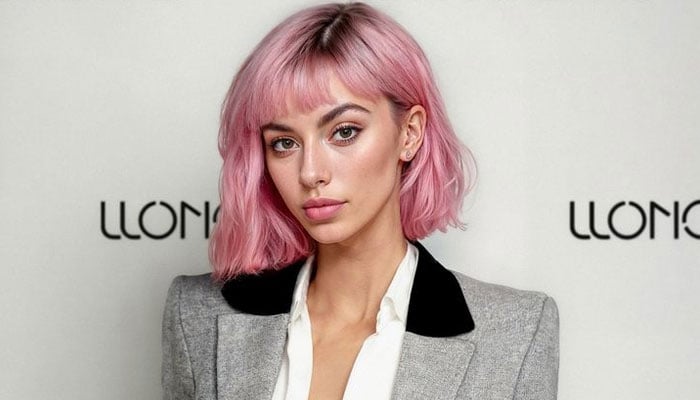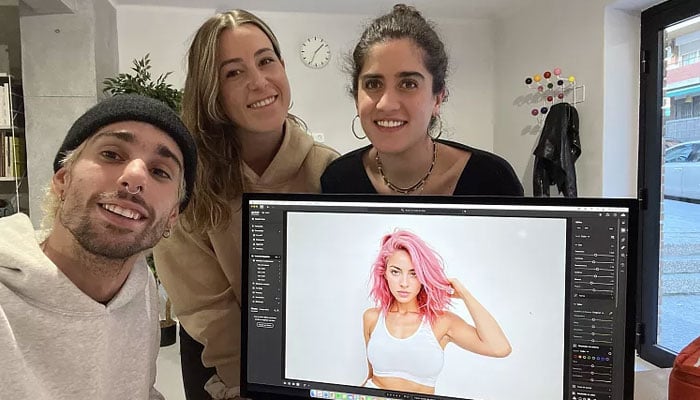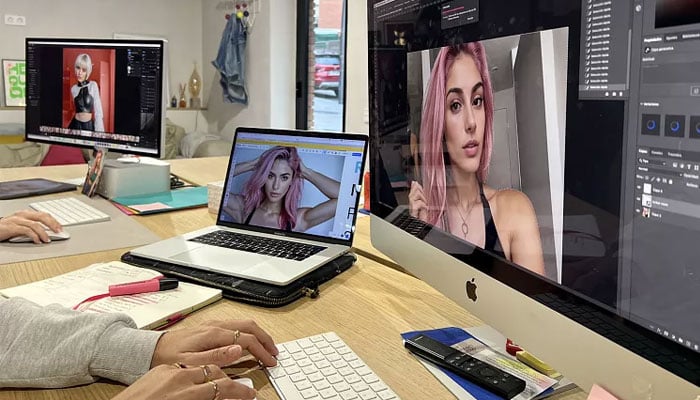Who's Aitana? First Spanish AI model making up to €10,000 a month
The Clueless agency created Aitana during difficult period when they didn't have many clients
January 21, 2024

Aitana, the first Spanish model created using artificial intelligence (AI) by Rubén Cruz, has been fooling celebrities with her flawless looks, as they ask her out on social media, unaware that she doesn’t exist.
Cruz, the founder of The Clueless agency, created Aitana during a difficult period for his agency when they didn't have many clients.
"We started analysing how we were working and realised that many projects were being put on hold or cancelled due to problems beyond our control. Often it was the fault of the influencer or model and not due to design issues," Cruz told Euronews.
So, they decided to create Aitana, their own 25-year-old, pink-haired influencer from Barcelona, with a physical appearance close to perfection. They used her as a model for the brands that approached them.

The virtual model can earn up to €10,000 a month, according to her creator, but the average is around € 3,000. She earns just over €1,000 per advert and has recently become the face of a sports supplement company.
In just a few months, she has managed to gain more than 121,000 followers on Instagram and her photos get thousands of views and reactions.
She even receives private messages from celebrities asking her out.
"One day, a well-known Latin American actor texted to ask her out. This actor has about 5 million followers and some of our team watched his TV series when they were kids," said Cruz. "He had no idea Aitana didn't exist," he added.
The agency team meets weekly to plan Aitana's life, including activities, destinations, and photos for followers, using a combination of AI and design experts to create a realistic representation of the model.

Aitana, a fitness enthusiast with a complex character, is a unique and outgoing model with a distinct personality, unlike traditional models who are often not revealed for designers to use as "blank canvas".
The designers have already created a second virtual model called Maia, "a little more shy" and the agency has also been inundated with requests from brands wanting their personalised model.
"They want to have an image that is not a real person and that represents their brand values so that there are no continuity problems if they have to fire someone or can no longer count on them," said Cruz.
The agency is promoting a campaign that aims to lower market prices and boost small companies by promoting unrealistic models.











